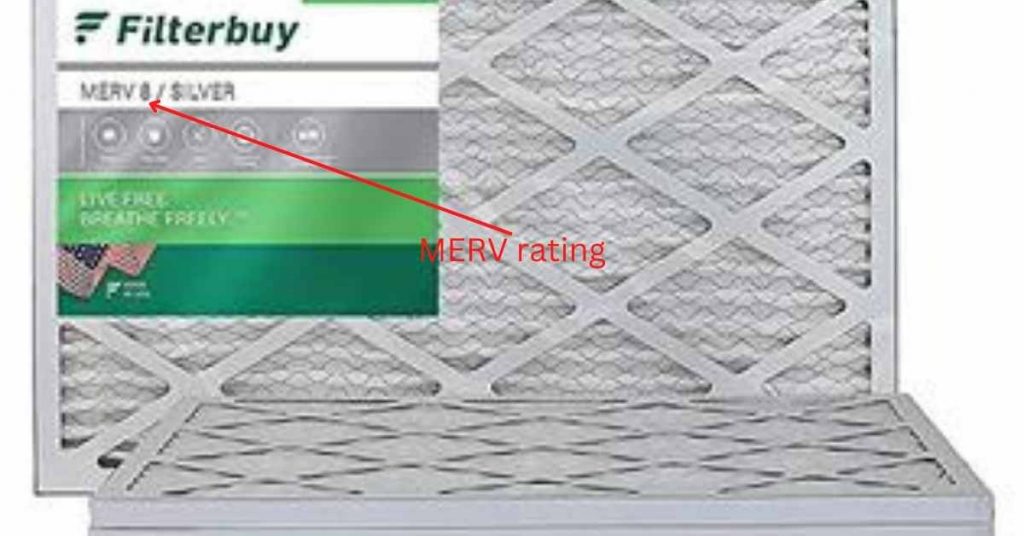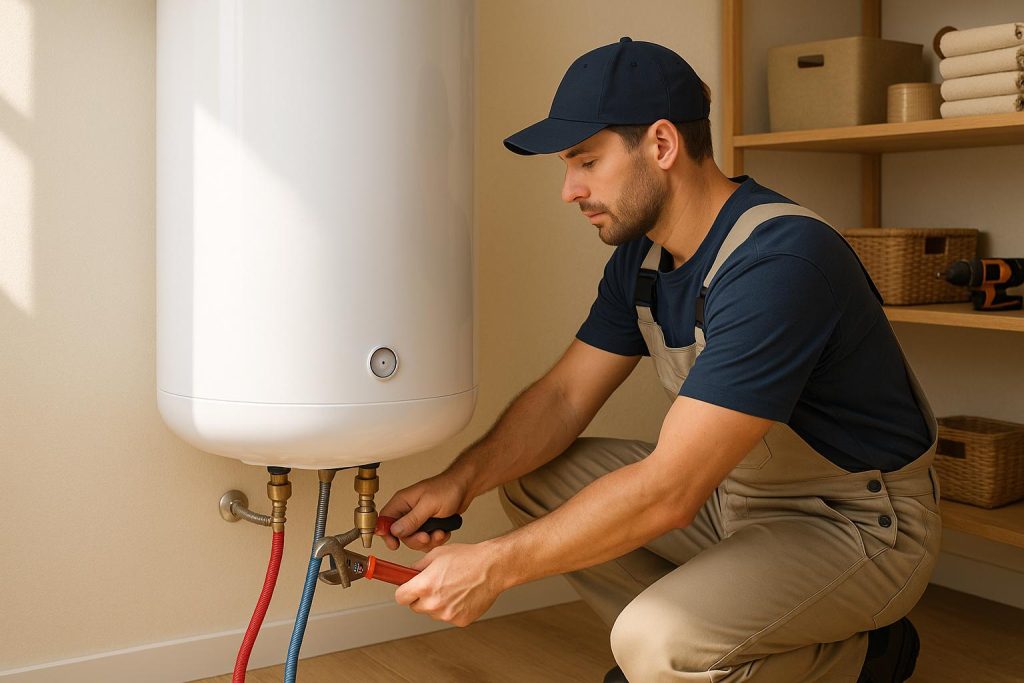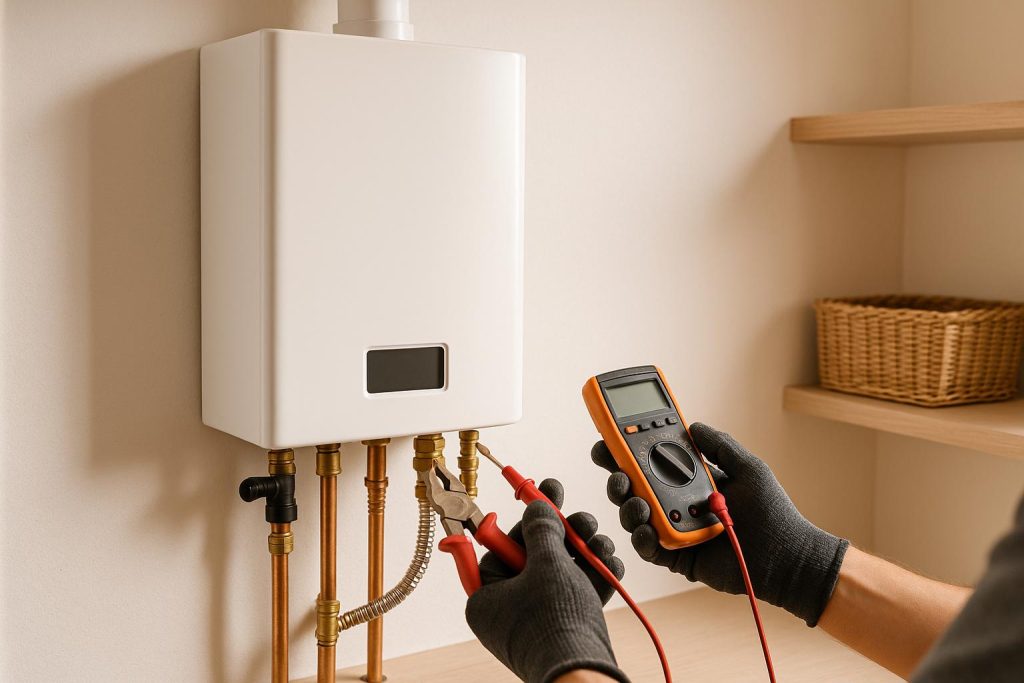
- Definition: The MERV rating is a numerical value that indicates how efficiently an HVAC filter can capture particles of varying sizes from the air. The scale typically ranges from 1 to 20, with higher numbers denoting better filtration efficiency.
- Particle Size Capture: The MERV rating measures a filter’s ability to trap particles with diameters between 0.3 and 10 micrometers (microns). This range covers a wide spectrum of particles, including dust, pollen, pet dander, mold spores, bacteria, and some viruses.
- Filtration Efficiency: A higher MERV rating indicates greater filtration efficiency, meaning the filter can capture a higher percentage of airborne particles within the specified size range. Filters with lower MERV ratings are less efficient but allow for better airflow.
- Common MERV Ratings:
- MERV 1-4: Filters in this range offer basic filtration and are typically used in residential HVAC systems where filtration needs are minimal.
- MERV 5-8: Filters in this range provide moderate filtration efficiency and are suitable for most residential applications.
- MERV 9-12: These filters offer higher efficiency, capturing smaller particles, and are ideal for homes with occupants who have allergies or asthma.
- MERV 13-16: Filters with these ratings provide advanced filtration, capturing even smaller particles, including bacteria and some viruses. They are often used in hospitals and commercial settings.
- MERV 17-20: Filters in this range offer the highest level of filtration efficiency and are used in critical environments like cleanrooms and pharmaceutical facilities.
- System Compatibility: It’s essential to consider your HVAC system’s compatibility with higher-MERV-rated filters, as they can potentially restrict airflow. Consult your system’s manufacturer or an HVAC professional to determine the appropriate MERV rating for your system.
- Indoor Air Quality: The choice of MERV rating should align with your indoor air quality needs. For most homes, a MERV rating between 8 and 12 strikes a balance between effective filtration and airflow.
What is a Good MERV rating?

A good air filter is the one that balances between energy efficiency and particle filtration. Air filters with higher MERV ratings may restrict the flow of air to the furnace/air handler thereby forcing the HVAC unit to work harder hence high inefficiency.
For residential HVAC systems, a good air filter MERV rating is between 8 and 13. Such a filter will remove most of the impurities in the air and will also not restrict the flow of air to the furnace/air handler. You will therefore have clean air and an energy-efficient system.
Air filters with a very high MERV rating are not recommended for homes. They are great in places like hospitals, laboratories and other such industries but definitely not homes.
A MERV 13 air filter isn’t necessarily too high for a home but it is not the best choice. While it will remove very fine particles from the air, it will restrict the flow of air to the air handler or furnace and could damage it or reduce its lifespan.
A MERV 11 filter is therefore better filter than a MERV 13 filter for homes. While there will be no noticeable difference in the particles being filtered, a MERV 13 filter will restrict air flow to the system more than a MERV 11 filter thereby reducing its efficiency.
So, what about MERV 10 and 12 filters? Which is better between the two?
A MERV 10 filter will trap up to 79% of particles present in the air while a MERV 12 filter will trap up to 89%. Both are good filters but while a MERV 12 filter will remove more particles, an HVAC system with a MERV 10 filter will be more effective due to less restriction of airflow.
Another thing to remember is that the higher a MERV rating a filter has the more frequent you are required to change it. Since filters with a higher MERV rating trap more particles, they clog at a faster rate and hence the need to replace them often.
Related: How to replace an HVAC filter.
In a nutshell, the best MERV rating for a filter to use at home is the one with a mid (8-13) rating. Avoid filters with a high MERV rating (over 14) and those with a lower rating (especially 1-4).
MERV Rating Levels
| Size of Fixture Trap (Inches) | Slope (Inches/Foot) | Distance from Trap (Feet) |
|---|---|---|
| 1 1/4 | 1/4 | 5 |
| 1 1/2 | 1/4 | 6 |
| 2 | 1/4 | 8 |
| 3 | 1/8 | 12 |
| 4 | 1/8 | 16 |
MERV ratings are an industry (heating, cooling and ventilation) standard. Therefore, this ratings are used across the board and they do not depend on the air filter brand.
Although there are up 20 MERV ratings in HVAC filters, they can be put together in three ranges/groups. Let us look at them in more details:
1. MERV Rating 1-6
Needless to say, this is the lowest range of MERV ratings, which means that filters in this range have the widest pores (MERV 1 having the widest pores). That does not however mean that these filters are useless or bad.
And that is exactly why the MERV ratings were introduced. They allows us to know the exact size of filter we need based on how much of filtration is needed.
Air filters in this category will remove particles such as:
- Dust mites
- Carpet fibers
- Spray paint dust
- Pollen
- Insects/bugs
The advantages of filters in this group is that they are inexpensive and also energy-efficient. Air flows through them without restriction hence the air handling unit or furnace doesn’t need to work hard to pull the air.
Unfortunately, these air filters are not designed to be used in homes. Since they remove the large particles from the air only, they cannot be used in residential buildings which needs the air to be cleaned further.
These air filters are also not the best for people with asthma and/or allergies. That is the primary reason they shouldn’t be used in residential areas.
2. MERV Rating 7-13

Air filters with a MERV rating of between 8 and 13 are the best filters to use in homes and commercial buildings like offices and other businesses.
MERV 8-13 filters remove the particles removed by MERV 1-6 filters and other smaller ones. Such particles include:
- Mold spores
- Cement dust
- Hair spray
- Fabric protector
- Humidifier dust
- Lead dust
- Auto emissions
- Flour
The main advantage of air filters in this range is that they remove most of the particles that you would want removed from your indoor and ventilation air. They are also friendly to people with asthma and allergies since most of the causative agents are filtered out.
However, the filters in this category are somewhat more expensive that those in the MERV 1-6 category. I would however advise you to ignore the cost in this case since your health and comfort should always be your first priority.
Another thing to remember is that the air filters in this category are not as energy-efficient as those in the MERV 1-6 category. Due to the small pores in these filters, the air handler/furnace will struggle to pull air through them therefore consuming more power.
I should however add that these filters are not painfully inefficient. In fact, they provide a great balance between energy efficiency and filtration.
You will also be required to replace them more often since they are more likely to clog.
Note: Although the general rule is to replace HVAC filters after 90 days, you may need to replace yours more often if you are asthmatic, suffer allergies, high number of people and/or pets in the house among other factors.
3. MERV Rating 14-20
MERV 14-20 air filters offer excellent filtration but at the expense of energy-efficiency. It is not advisable to use these filters in residential houses.
HVAC filters with a MERV rating of 14 to 20 offers the highest filtration (20 being the highest) and include commercial, High Efficiency Particulate Air (HEPA) and Ultra-low Penetration Air (ULPA) filters.
The following are the particles that filters in this range can remove:
- Bacteria
- Viruses
- Sneezes
- Tobacco smoke
In case you are wondering, the efficiency of MERV 14 and higher air filters is as high as 95%. Such filters are ideally used in hospitals, laboratories, pharmaceutical industries and other such industries where highest air purity is needed.
Needless to say, the advantage of filters with the highest MERV ratings is their high efficiency. They greatly help in preventing contamination in sensitive commercial applications.
The main disadvantage of these filters is high inefficiency. Due to how small their pores are, the air handling units struggle to pull air through them which forces them to work harder thereby consuming more power.
The fact that these filters overwork the HVAC system means that the HVAC system does not last long and it often needs repairs or regular maintenance to make sure that it is running properly.
Apart from the fact that these filters are not cheap, they also need to be replaced frequently. Failure to do that will clog them up and restrict airflow which can ultimately damage the HVAC system.
Conclusion
And basically that is everything in as far as MERV rating in HVAC filters is concerned. I hope that these guide was helpful and that you now know the best MERV rating for your furnace or air conditioner.





